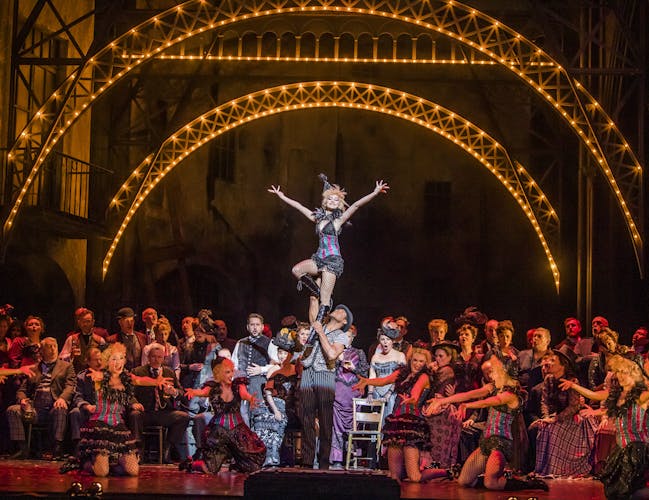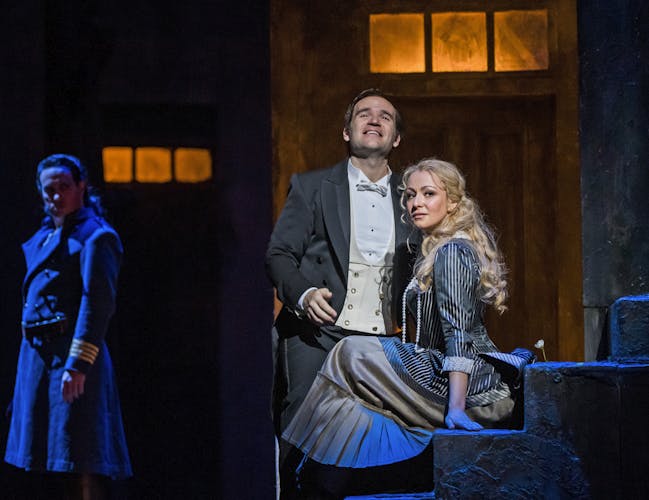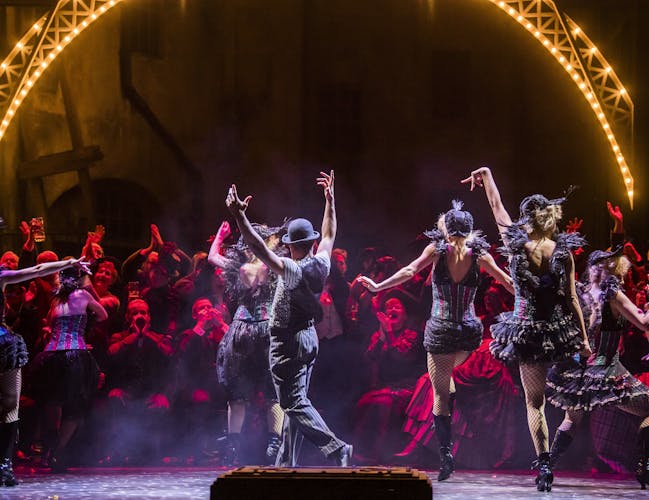Faust in popular culture
Learn more about Faust's influence across film, television, literature and music.
You have to feel for Faust; slaving away at his studies for years on end not getting anywhere. It's almost no surprise that he went for the option of summoning the demon Méphistophélès and swapping his hell-dwelling visitor's services on earth for eternal torment. It's a compelling tale based upon a centuries-old legend – immortalized in literature by Goethe – that since that time has been referenced in hundreds if not thousands of other works, including Gounod's opera, which had its premiere in 1859.
Film
In film, diabolical deals crop up in a number of works including Roman Polanski’s 1968 Rosemary’s Baby, in which the happiness of newlyweds Rosemary (Mia Farrow) and Guy Woodhouse (John Cassavetes) is threatened by Guy’s sinister ambition. Her husband’s deal with the devil ultimately leads to Rosemary’s satanic rape (and later pregnancy), the terrifying loss of her bodily autonomy as rapid as Guy’s rise to fame. Robert Eggers’ 2015 folk-horror film The Witch also features a deal with the devil, the character Thomasin (Anya Taylor-Joy) signing her name in the Devil’s book to join a murderous coven of witches.
In a non-horror turn, the Coen brothers’ Oh Brother, Where Art Thou? (2000) – a 1930s era retelling of The Odyssey – features the character Tommy Johnson, who sells his soul to the devil at a crossroads for the ability to 'play the guitar real good'. There’s also a hint of Faust in Frances Ford Coppola’s The Godfather (1972) with the undertaker asking the feared character of Don Corleone (Marlon Brando) for a favour, only for the gangster to request a favour in return. Both versions of Bedazzled (the 2000 remake starring Liz Hurley) also involve deals with the devil in disguise.
Television
TV, too, makes use of Faustian themes. We see this in a Halloween special episode of The Simpsons, which parodies Faust with Homer Simpson selling his soul to the Devil (in this case played by the usually saintly neighbour Ned Flanders) for a donut. Other examples occur in Lost, The Twilight Zone, Star Trek: The Next Generation and the recent television adaptation of Rosemary’s Baby, Apartment 7A, starring Julia Garner.
Literature
Other works of literature too have incorporated the theme – Oscar Wilde's The Portrait of Dorian Gray telling the tale of a young aristocrat who sells his soul to be eternally young with shocking and destructive results. Isaac Asimov also included satanic soul-selling in his science fiction stories as did Bulgakov in The Master and Margarita which sees the Devil in disguise visiting 1930s Moscow.
Music
And finally popular music has also taken influence from the work. Examples include the at-times nonsensical lyrics of Queen’s Bohemian Rhapsody (in particular the operatic section) being interpreted as a murderer selling his soul and atoning on the night of his execution. Blues guitarist Robert Johnson (like his similarly-named aforementioned counterpart) was also said to have acquired his musical skill through a fiendish exchange with Lucifer. Radiohead have also taken influence from the work, most notably the tracks Faust ARP and Videotape – the latter featuring the lyrics 'Mephistopheles is just beneath / and he's reaching up to grab me'. Robert Wilson, Tom Waits and William S. Burroughs’ musical fable The Black Rider also features the devil, and is based on the German folktale Der Freischütz, which inspired Carl Maria von Weber's opera of the same name.
Gallery
Watch Now
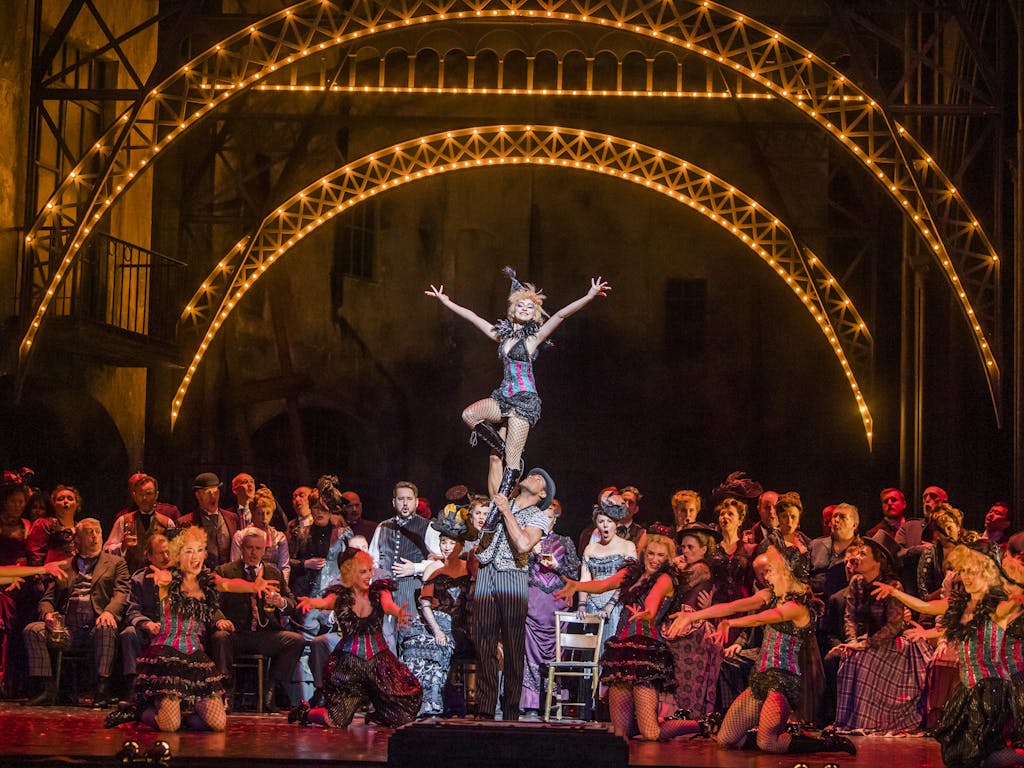
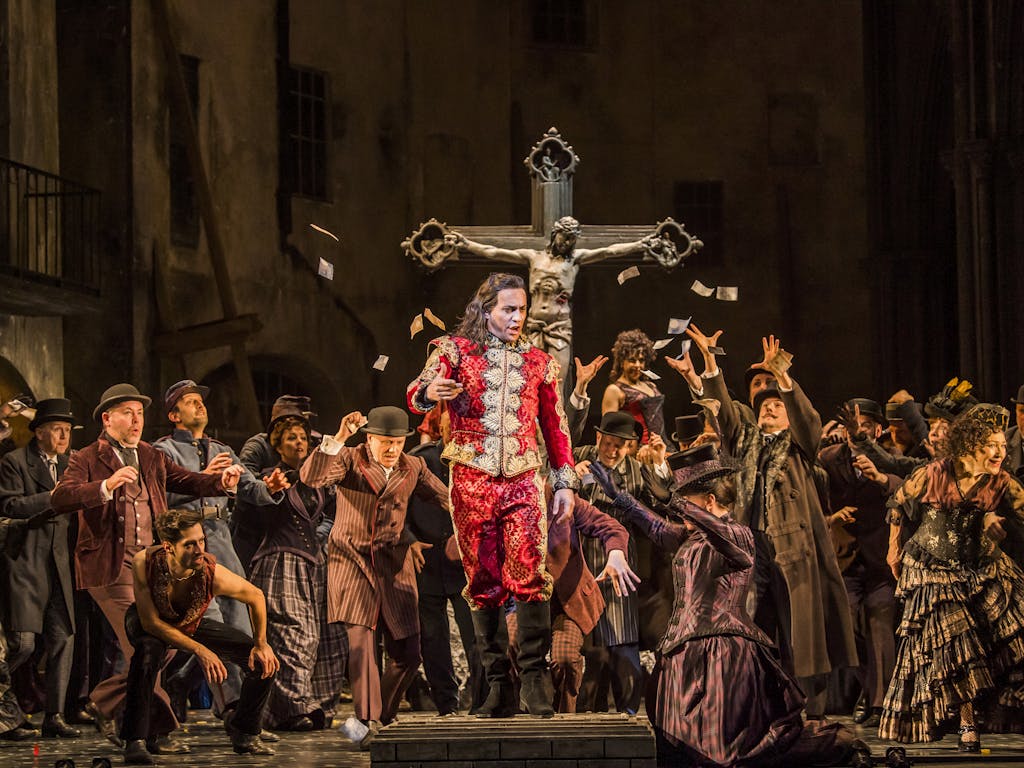
Watch on Stream
A deal with the devil. What could go wrong? Experience the decadence and elegance of David McVicar’s spectacular production of Gounod’s masterpiece.

